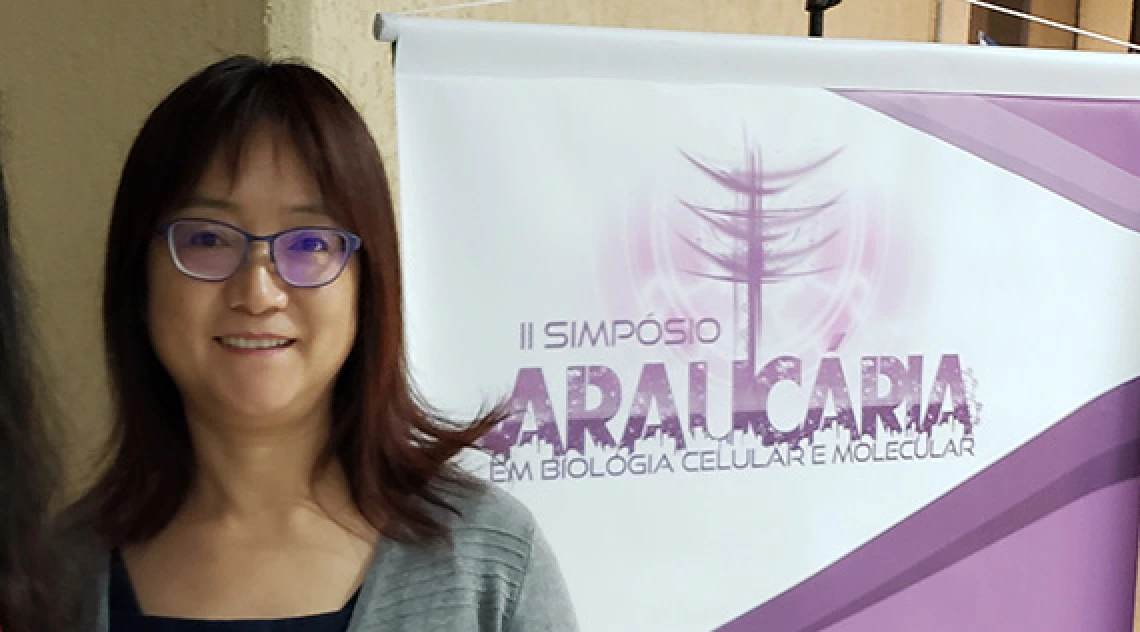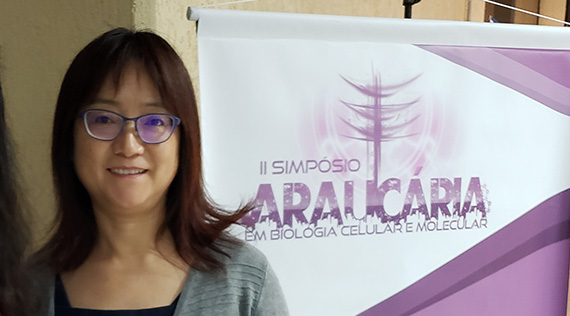Donna Zhang attends the Araucaria Symposium on Molecular and Cellular Biology in Brazil

 The Araucaria Symposium on Molecular and Cellular Biology took place in Brazil (June 25-27, 2019). The event was organized by the Graduate Program in Cellular and Molecular Biology of the Federal University of Parana and the Biosciences and Biotechnology Institute Carlos Chagas with the participation of renowned researchers from Brazil and around the world.
The Araucaria Symposium on Molecular and Cellular Biology took place in Brazil (June 25-27, 2019). The event was organized by the Graduate Program in Cellular and Molecular Biology of the Federal University of Parana and the Biosciences and Biotechnology Institute Carlos Chagas with the participation of renowned researchers from Brazil and around the world.
This Symposium focused on the theme of Cellular Stress. The objectives were to: (1) promote discussion of cell biology and molecular interaction topics between researchers of different national and international research groups, (2) to establish collaborations and partnerships and, (3) to encourage the graduate students to consider diverse graduate programs.
Dr. Zhang presented “The NRF2-KEAP1-ARE Signal Pathway: Regulation and Dual Role in Cancer”. In her talk, she discussed the molecular mechanisms of NRF2 regulation, ARE-dependent upregulation by NRF2-sMAF, as well as the newly identified ARE-NRE-dependent repression by NRF2-RPA1.
Dr. Zhang talked about how Reactive Oxygen Species (ROS) are one of the underlying causes of aging and many age-related diseases. The human body has been equipped with many systems to cope with the production of ROS or oxidative stress. NRF2, a transcription factor, is critical for maintaining our body’s redox homeostasis by signaling the production of antioxidants and detoxifying enzymes through antioxidant response elements (AREs) in the promoters of these genes. After two decades of research, NRF2 has been recognized as a cellular defense system against oxidative, proteotoxic and metabolic stress. So far, over three hundred NRF2 target genes have been defined as NRF2 target genes, and at least ten NRF2-target genes are critical in controlling ferroptosis.
She finished by discussing the therapeutic development of NRF2 modulators for disease prevention and intervention.

